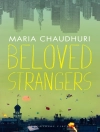In ‘Sowing and Sewing, ‘ Charlotte M. Yonge weaves a rich tapestry of narrative that deftly explores the intertwined themes of domestic life and moral development in Victorian England. Utilizing a blend of vivid characterizations and didactic prose, Yonge examines the lives of her protagonists as they navigate personal challenges and societal expectations. The novel reflects the era’s emphasis on women’s roles in the home, symbolically linking domestic tasks with the virtues of nurturing and moral cultivation. With her keen eye for detail and a commitment to highlighting the importance of character over circumstance, Yonge invites readers into a world where the mundane acts of sowing and sewing take on profound significance. Charlotte M. Yonge, a prominent Victorian novelist, was a leading figure in the literary landscape of her time, known for her keen insights into women’s roles and her staunch Anglican faith. Raised in a family that valued education and literature, Yonge experienced a backdrop that fostered her deep understanding of moral rectitude, which heavily influenced her writing. Through her work, she sought to uplift and educate her readers, encouraging them to embrace an idealized vision of domestic life as a path to virtue and fulfillment. ‘Sowing and Sewing’ is highly recommended for those intrigued by Victorian literature and the complexities of gender roles. Yonge’s ability to blend moral lessons with engaging storytelling offers readers both entertainment and enlightenment. This novel is an essential read for anyone interested in the exploration of domesticity and morality in the literary canon.
Giới thiệu về tác giả
Charlotte Mary Yonge (1823–1901) was a prolific English novelist, known for her strong Anglican beliefs and for her immense contributions to children’s literature and the genre of historical fiction. Born into a religious family in Hampshire, Yonge’s literary career was often seen as an extension of her devout faith; she used her writing to promote the values of the Oxford Movement, which sought to reinvigorate the Church of England with Catholic traditions. Her novels frequently depicted the trials and triumphs of ordinary people striving to uphold Christian virtue against the challenges of the modern world.
Among Yonge’s most significant works is ‘The Heir of Redclyffe’ (1853), which achieved widespread popularity and acclaim, setting a high standard for religious and historical fiction. In books like ‘Sowing and Sewing: A Sexagesima Story’ (1866), Yonge explored themes of duty, family, and the moral dimensions of everyday activities. Her narrative style often included a didactic component, reflecting her commitment to educating and influencing her readers. Although her popularity waned in the 20th century, her work has experienced a revival with modern readers seeking insight into Victorian society and the cultural influences of that era. Yonge’s extensive writing legacy also includes ‘The Daisy Chain’ (1856) and ‘The Clever Woman of the Family’ (1865), underscoring her role as a significant figure in Victorian literature. Her nuanced portrayal of characters and moral complexities continue to resonate in the current literary landscape.












